US seizes nearly $600k in crypto from Iranian tied to IRGC drones
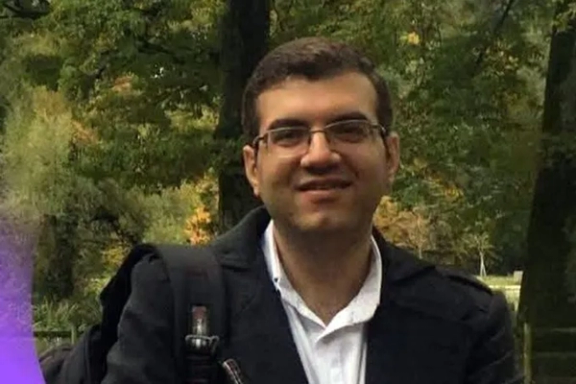
Federal prosecutors in Massachusetts said on Friday they had seized $584,741 in cryptocurrency from an Iranian national tied to the Revolutionary Guards’ drone manufacturing program.

Federal prosecutors in Massachusetts said on Friday they had seized $584,741 in cryptocurrency from an Iranian national tied to the Revolutionary Guards’ drone manufacturing program.
The assets belonged to Mohammad Abedini Najafabadi, also known as Mohammad Abedini, 39, of Tehran.
“The government seized USDT (Tether) from an un-hosted cryptocurrency wallet alleged to be controlled by Abedini,” the Justice Department announced in a statement on Thursday.
USDT (Tether) is a stablecoin, meaning its value is tied to the US dollar. The cryptocurrency has been issued by Tether Limited since 2014.
Abedini is the founder and managing director of San’at Danesh Rahpooyan Aflak Co. (SDRA), a company that manufactures navigation system modules, including the Sepehr Navigation System (SNS), used in the Islamic Revolutionary Guard Corps (IRGC) military drone program, the Justice Department alleged.
The IRGC has been designated a Foreign Terrorist Organization (FTO) by the United States since 2019.
The SNS is used in guided rockets and missile-integrated navigation systems. In January 2024, three US service members were killed in an attack Washington blamed on the IRGC. A drone recovered from the attack was identified as a Shahed drone equipped with the SNS guidance system.
The strike targeted Tower 22, a US military base in northern Jordan, injuring more than 40 others.
“US law authorizes the forfeiture of all assets of individuals or entities engaged in planning or perpetrating a federal crime of terrorism against the United States, its citizens or residents, or their property, and all assets, foreign or domestic, affording any person a source of influence over any such entity,” the Justice Department said.
The United States charged Abedini in 2024 with conspiring to export sophisticated electronic components from the US to Iran and providing material support to a designated FTO.
He was arrested in Italy in December 2024 at the request of the United States, which sought his extradition. Abedini was released in January 2025 after Italy appeared to swap him for an Italian journalist detained in Tehran.
Italian authorities determined that violations of the International Emergency Economic Powers Act are not punishable under Italian law, in line with the Italy–US extradition treaty.
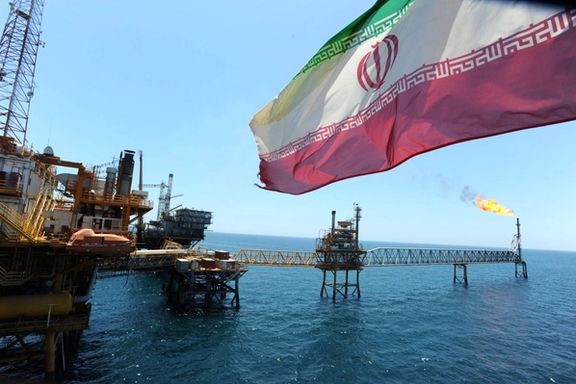
The uptake of Iranian oil at Chinese ports hit highs last seen before Donald Trump reentered the White House in early 2025 and revived his so-called maximum pressure campaign, tanker-tracking data obtained by Iran International reveals.
Figures from commodities intelligence company Kpler shows a sharp rise in Iranian oil offloaded at Chinese ports last month in a sign the world's top oil importer was unfazed by attempted US curbs on Tehran's supplies.
The surge was so significant that Iran’s unsold crude stored at sea in Asian waters—which had been building for months— fell by half in just one month, in a sign of stepped up demand.
According to Kpler, Iranian crude offloaded at Chinese ports in August hit 1.68 million barrels per day (bpd)—a 23% jump from July.
Floating storage dropped to 15 million barrels by September 7, down from 30 million barrels in early August, much of it concentrated near Malaysia.
Since the start of the year, the US Treasury has sanctioned 127 tankers along with dozens of individuals, companies and networks accused of skirting US sanctions on Iranian flows, which it says enriches Tehran's aggressive military moves.
Tehran denounces the sanctions as an attack on the livelihood of its people and bid to bend its policy to Western will.
The frenetic pace of new curbs manifested itself at times in near daily new US announcements on entities in the Treasury and State Department crosshairs for allegedly moving Iran's oil.
Yet the administration’s pledge to “bring Iran’s oil exports to zero” appears to have fallen far short of its intent, the data indicates.
Both loading and discharging volumes of Iranian crude are higher than last year.
While month-to-month fluctuations in Chinese port discharges have been sharp, the overall trend shows growth. On average, China has discharged 1.45 million bpd of Iranian crude over the first eight months of 2025, slightly above the same period last year.
This transpired despite Washington blacklisting more than a hundred “ghost fleet” tankers linked to Iranian smuggling operations.
China holds the key
US efforts to dismantle Iran’s smuggling networks—through monitoring ship-to-ship transfers, forged documents and hidden financial channels—could eventually slow Tehran’s trade.
But Beijing’s willingness to greenlight purchases of Iranian oil appears to have carried the day. Without Chinese cooperation, Washington’s “maximum pressure” strategy could face failure.
Chinese Premier Xi Jinping hosted Iranian President Massoud Pezeshkian along with heads of state from Russia, North Korea and other nations not aligned with the United States for an international conference and military parade this month.
The spectacle was widely interpreted as a show of strength and defiance toward American preeminence in global politics and trade and a sign that sharp policy swerves by the Trump administration on sanctions and tariffs were rejected.
Beijing’s insistence on importing Iranian oil is not driven by supply shortages or price discounts alone. The market is oversupplied, and prices are lower than last year.
The International Energy Agency (IEA) noted in its September 11 report that global oil production this year is expected to rise by 2.7 million bpd, while demand will increase by only 700,000 bpd.
Analysts estimate Tehran grants Chinese refiners discounts of $4-6 per barrel to keep crude moving. Yet China’s persistence in overlooking US sanctions may also serve as a bargaining chip in trade talks.
Since returning to office, President Trump has reimposed multiple layers of tariffs on Chinese goods, and US Census Bureau data shows imports from China fell 19% year-on-year in the first seven months of 2025.
China’s refusal to enforce US oil sanctions against Iran could thus be part of a broader strategy to leverage concessions from Washington in its trade disputes.
Oil-for-goods nexus
Another key factor is that Chinese exports to Iran are closely tied to oil imports. Crude shipments underpin China’s status as Iran’s largest trading partner, with part of Tehran’s oil payments settled through barter with Chinese goods.
Beyond crude, China is also the main buyer of Iran’s petroleum and petrochemical products, which together account for about half of the country’s total exports.
Despite US sanctions this year on nine tankers carrying Iranian liquefied petroleum gas (LPG), consultancy Vortexa reports Iran’s LPG exports rose to 1.1 million tons in August. Kpler data indicates China absorbs around 80% of that trade.
By relying on imports of Iranian oil and petroleum products, China now accounts for more than a quarter of Iran’s total goods imports—underscoring how central Beijing has become to Tehran’s economic survival.
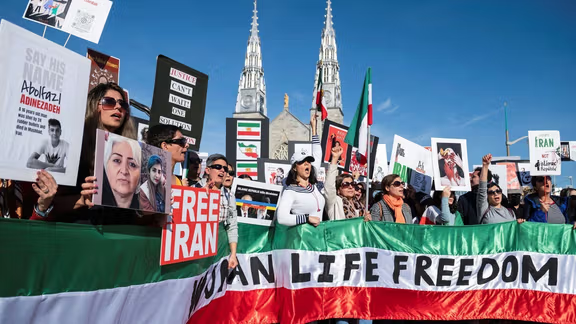
The United States, Canada, Australia and their European allies on Friday condemned Iran for escalating a campaign of transnational repression, accusing its intelligence services of seeking to kill, kidnap and harass political opponents overseas.
Members of the G7 Rapid Response Mechanism (Canada, France, Germany, Italy, Japan, the United Kingdom, the United States, and the European Union), joined by associate members Australia and New Zealand, issued a joint statement Friday condemning what they described as Iran’s growing campaign of transnational repression.
The statement cited recent declarations by Australia, Canada, France, Germany, the Netherlands, New Zealand, the UK, and the US, which detailed what they called increased attempts by Iranian intelligence services to kill, kidnap, and harass political opponents overseas.
The attempts, the G7 said, follow "a disturbing and unacceptable pattern of transnational repression, and clearly undermine state sovereignty."
Last month, UN human rights experts condemned what they called Iran’s intensifying campaign of repression against journalists working for Iran International and the intimidation of their families, particularly after the 12-day war with Israel.
"Reports suggest that journalists have been followed, had tracking tags attached to their cars, and their cars repeatedly broken into. Women journalists have faced threats of death and sexual violence on social media and instant messaging services, some receiving hundreds of messages a day."
The statement came after Iran International filed an urgent appeal with the experts urging them to take action against Iran over serious risks to the lives and safety of their journalists worldwide and relatives inside Iran.
In July, British lawmakers warned that Iran is among several foreign governments engaged in transnational repression on UK soil.
A report from parliament’s Joint Committee on Human Rights said Tehran’s tactics include “assassination plots, physical attacks, intimidation of family members, asset freezing, judicial proceedings, smear campaigns, online abuse, surveillance and digital attacks such as hacking, doxing and impersonation."
Beyond targeting dissidents, the G7 on Friday warned of other malign operations linked to Iran, including what it described as efforts to obtain and publish journalists’ personal information and actions designed to “divide societies and intimidate Jewish communities.”
“The G7 RRM stands in solidarity with our international partners whose citizens and residents have also been targeted by Iran,” the group said, vowing to continue countering foreign interference.
The RRM was launched in 2018 to address foreign threats to democracy.
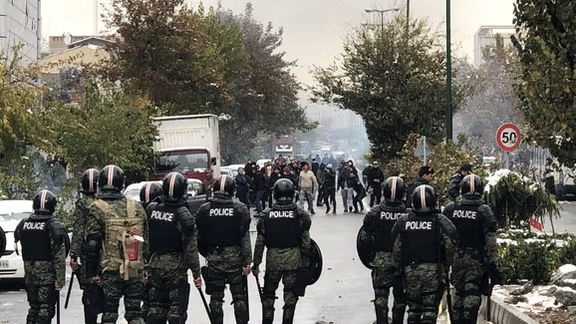
The United States on Friday expressed solidarity with Iranian people, saying in a message marking the fifth anniversary of Tehran's execution of wrestler Navid Afkari that Washington backed their struggle for freedom.
"Five years ago today, the authorities of the Islamic Republic of Iran executed Navid Afkari after years of torture and a sham trial," the State Department said in a post on its Persian X account.
The State Department said Navid Afkari’s case "reflects a broader pattern of systematic impunity for torture, forced confessions, and executions carried out without due process in Iran’s judiciary."
Afkari was arrested in 2018 and later sentenced to death for killing government employee Hassan Torkaman during antigovernment protests in Shiraz.
Before being executed in 2020, Afkari sent several audio messages from prison in which he said he had confessed to the murder only under physical and psychological duress.
"Through sham judicial procedures, this regime seeks to create the illusion of justice while denying fairness, fair trial, and accountability," the State Department said in its post on X.
"The United States condemns these actions and reaffirms its unwavering support for the Iranian people in their pursuit of justice, freedom, and human dignity."
At the height of Iran’s 2022 protests against the Islamic Republic, Donald Trump praised the demonstrations by the Iranian people.
“The people of Iran are bravely protesting against their corrupted and brutal regime, courageously facing down violence, persecution, jail, torture, and even death... we are with you and we will always be with you.”
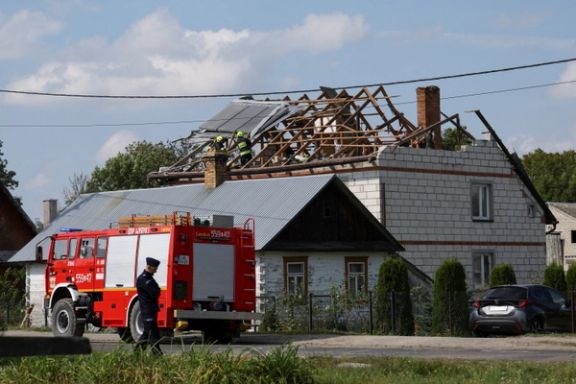
Two US senators sounded the alarm over the violation of NATO-member Poland's airspace on Tuesday by pilotless aircraft from Russia and Belarus, as Moscow steps up fusillades against Ukraine with Iranian-designed drones.
Speaking to Iran International, the lawmakers hit out at the escalation to the war in Ukraine after Poland said 19 Russian drones reportedly violated its airspace on Tuesday but were thwarted by Polish and NATO jets and air defenses.
Russia has stepped up blitzes on Ukraine in recent weeks involving hundreds of drones each and including Iranian-designed Shahed kamikaze drones. It was not immediately clear if they were among the drones intercepted over Poland.
“Iran has, over the last several years, been a critical and active partner in Russia’s aggression against Ukraine,” Democrat Senator Chris Coons said.
“By providing drone technology and even producing drones inside Russia for use against Ukraine, Tehran has enabled Putin’s war machine.”
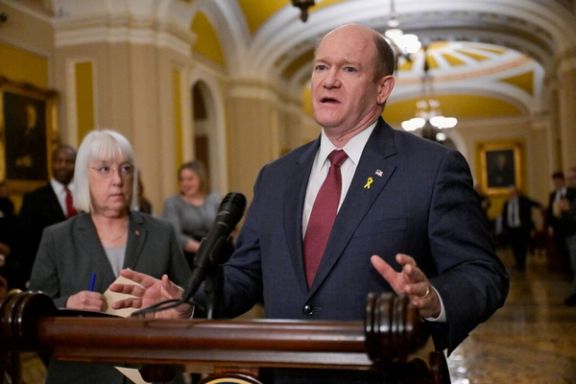
Moscow denied any intent to violate Polish airspace, saying it did not seek to strike any targets in Poland and questioning whether the drones came from Russia at all.
The Chairman of the US Senate Foreign Relations Committee said facts are still emerging but said Russia had erred in piercing NATO air space.
“Russia is playing with fire here. Putin has made a lot of mistakes, and this could be the worst one he’s made yet," Republican Senator James Risch told Iran International. "We’ll see how this unfolds.”
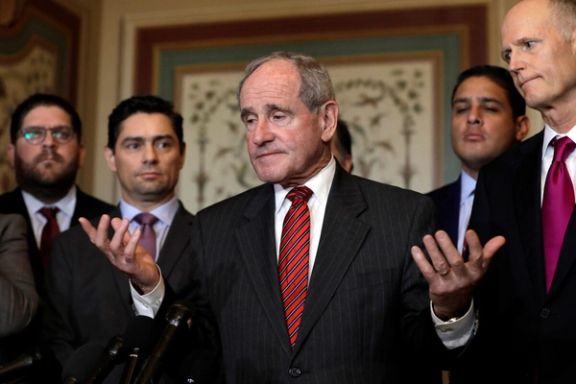
'Open conflict' near
Poland, a former member of the Eastern Bloc under Moscow's tutelage for much of the twentieth century has become a staunch Western ally and base for NATO troops as the alliance's relationship with Iran, Russia and China has soured.
The drone incursion rattled its leadership, which warned of a dire escalation.
"This is the closest we have been to open conflict since World War II, but there is no reason to believe we're on the brink of war," Polish Prime Minister Donald Tusk told parliament.
Iran provides drone technology to Russia for its war against Ukraine, prompting a series of punitive sanctions from the United States and European Union.
Belarus, a close ally of Russia, confirmed the drones had entered Polish airspace, calling it an accident after the drones' navigation systems were jammed.
Western leaders have frequently warned against what they see as deepening security cooperation among their Eurasian adversaries Russia, Iran, China and North Korea.
After the incidents, Warsaw invoked Article 4 of NATO's charter which enables closer coordination with all NATO member states. A UN Security Council meeting to discuss the developments is scheduled for Friday.
Poland closed all border crossings with Belarus ahead of the joint Russia-Belarus Zapad 2025 military exercises, citing alleged security risks and Russian aggression.

Talks on a prisoner swap between Iran and France were in their final stage, state media reported late Thursday, and potentially involve French detainees in Iran and an Iranian woman jailed in Paris.
Foreign Minister Abbas Araghchi told state television the process was moving forward. “Negotiations are in their final stages,” he said. “We hope the process will be completed in the coming days.”
The detainee in France is Mahdieh Esfandiari, 39, who has been held in Fresnes prison near Paris since March on charges of glorifying terrorism. Prosecutors said she posted messages on Telegram in support of Hamas’ Oct. 7 attack in Israel, which they considered incitement to terrorism and insults against the Jewish community.
On Friday, outgoing French Foreign Minister Jean-Noël Barrot said Paris was demanding the “immediate and unconditional” release of its nationals. “France has always called for the immediate and unconditional release of our compatriots in Iran,” he told France Inter radio, declining to comment on Araghchi’s remarks.
Among those imprisoned are Cecile Kohler and her husband, Jacques Paris, detained in May 2022. Iranian authorities accused them of spying for Israel and trying to stir labor protests, charges their families call baseless.
They have been held for more than three years under conditions family members describe as harsh, with limited access to lawyers and relatives.
Kohler's sister Noemie told Iran International that the family had not been informed about any progress and was wary of the reports.
"Unfortunately, we have no information beside what is said in the media," she said. "We are very cautious regarding this statement."
A third detainee is 19-year-old dual national Lennart Monterlos, who disappeared in Iran in June while cycling. Araghchi confirmed his arrest in July without specifying the charges.
Araghchi said Iran’s judiciary and security agencies were involved in the process and that practical steps would follow once legal procedures were complete. Tehran rejects Western accusations that it detains foreign nationals as leverage in disputes.
Rights groups say Iran has a record of detaining foreigners for political ends. Human Rights Watch and others have described such cases as “state hostage-taking.”